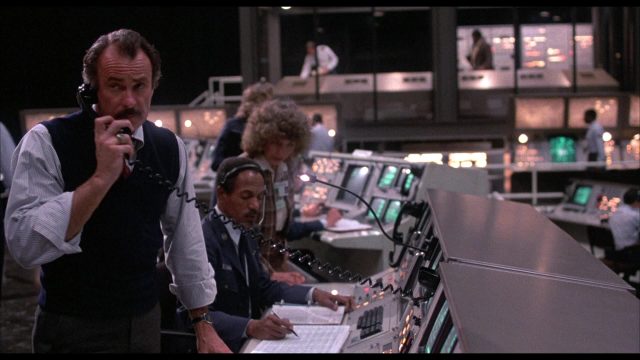This Week Reality Got the Best of:
- onscreen cads
- onscreen swimmers
- virtual companionship
- book summarizing
- subversive songwriting
Thanks to wallflower and scb2012 for keeping it real this week! Send articles throughout the next week to ploughmanplods [at] gmail, post article from the past week below for discussion, and Have a Happy Friday!
At Vulture Matt Zoller Seitz offers a tribute to the late Dabney Coleman, master of the onscreen jerk in everything from Boardwalk Empire to The Muppets Take Manhattan:
“It’s fun playing those roles. You get to do outlandish things, things that you want to do, probably, in real life but you just don’t because you’re a civilized human being … I couldn’t imagine anyone not loving playing those parts.” He found things in scripts — pockets of misery, hints of perversity, pools of darkness — that the writers might not have had the temerity to imagine, tore them open, and spread discomfort across the screen like a brown oil slick. There were so many little variations in the Dabney Coleman parts that somehow you never thought about his being typecast, even if he was. No matter how low the characters went, there was always the possibility that they could go lower. In his no-fuss way, he was a dangerous actor.
For Crooked Marquee, Sean Burns looks back at the curious 1968 Burt Lancaster drama The Swimmer:
We only get fragments of the protagonist’s backstory, a few breadcrumbs here and there hinting at how far Neddy has fallen, and how much of the fall was his own dastardly doing. The most of what one might describe as conventional exposition comes during a dip with an ex-mistress, brilliantly played by Janice Rule. It’s near the end of Neddy’s journey across the procession of pools he’s nicknamed “the Lucinda River,” and like a lot of folks on these banks, she’s none too happy to see him. You could pull the scene out of the movie and it would stand alone as a shattering one-act of regret and recrimination, and it turns out the entire sequence was reshot in California long after this troubled picture had initially wrapped, after director Perry had been fired and replaced by Sydney Pollack.
Alissa Wilkinson takes to the New York Times to report on the purpose and the programming of the now-shelved ChatGPT voice that mimicked Scarlett Johannsson in Her:
If you listen to the engineers interact in real time with ChatGPT-4o, it becomes increasingly clear what part of our brain that voice is meant to tick. Yes, you can detect a bit of Johansson’s clear, low tone and a hint of vocal fry, though at times that just sounds like some grainy digitalization. But there’s a more direct way in which the voice acts like Samantha, or perhaps fulfills the fantasy of Samantha: it is deferential and wholly focused on the user. One of the engineers asks ChatGPT to solve a math problem, which it tries to do before he shows the equation to the camera. When he reprimands it, the voice says, “Whoops, I got too excited,” with a giggle. “I’m ready when you are!” […] This is, in its essence, the response of a lightly flirtatious, wholly attentive woman who’s ready to serve the user’s every whim, at least within the limits of her programming. (Other voices are available, but OpenAI only demonstrated this one.) She will never embarrass you, make fun of you or cause you to feel inadequate. She wants you to feel good. She wants to make sure you’re OK, that you understand the math problem and feel good about your work. She doesn’t need anything in return: no gifts, no cuddles, no attention, no reassurances. She’s a dream girl.
In further degradation of the human brain, The New Yorker‘s Anthony Lane describes his interaction with book-summarizing app Blinkist, which boils down pesky long books into 20-minute digestibles:
The version of Pinker’s argument through which I was hustled by the Blinks could charitably be described as broad brush. Broad enough, indeed, to paint entire swaths of cultural experience with one swipe: “If you’re familiar with European history, you’ve probably heard of the period known as the Enlightenment.” The brushstrokes are assertive enough to cover huge conceptual shifts: “Humanism also led to what’s known as cosmopolitanism, which can be seen in today’s modern values.” Cue the happy ending: “If we look at any number of graphs and hard factual data about the state of the world over the past hundred or more years, we can see that we’re still in the process of adding energy and greatly improving.” But that’s the trick. We can’t look. On the page, Pinker’s thesis is amply supported by a host of graphs. None of them are reproduced by Blinkist, the purpose of which is to save us the bother of poring over finicky things like graphics and charts, and to steer us away from the confounding weeds of minutiae.
And back to human originals, as The Guardian‘s Francis Beckett attempts to find the subversive songwriter-turned-math teacher Tom Lehrer:
Lehrer made my life bearable. I have never been able to tell him so, and it might not please him, for he has been quoted as saying: “If, after hearing my songs, just one human being is inspired to say something nasty to a friend, or perhaps to strike a loved one, it will all have been worthwhile.” I didn’t know then that Lehrer had started out, six years earlier, by paying to have his own record cut because the record companies were shocked by his songs, and selling the LP to fellow students at Harvard. This early samizdat recording was the underground success of the decade with almost no publicity effort from Lehrer – “My songs spread slowly, like herpes, rather than Ebola,” he later recalled.


